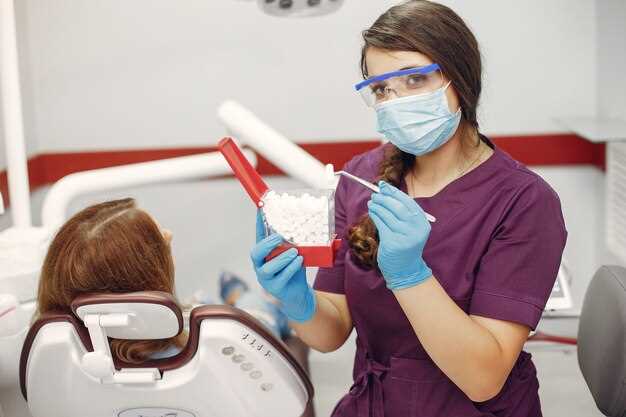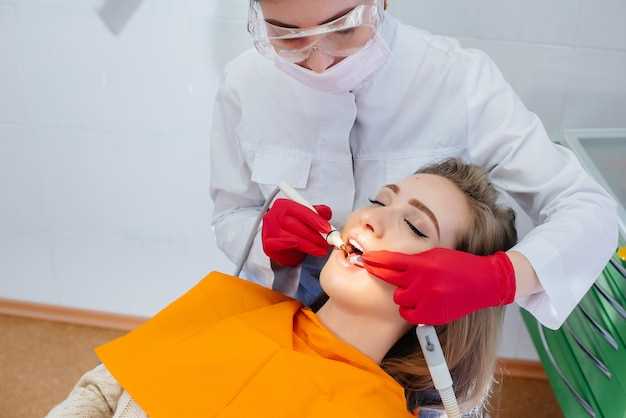
Are you struggling with dental health issues? Looking for a solution to improve your oral health?
Introducing Atorvastatin – a breakthrough medication that not only helps you manage cholesterol levels but also promotes healthier teeth and gums!
Studies have shown that Atorvastatin, a widely prescribed statin, can have a positive impact on dental health. This powerful medication not only reduces cholesterol but also has anti-inflammatory effects that can help combat gum inflammation, commonly known as gingivitis.
Why choose Atorvastatin for your dental treatment?
1. Dual benefits: Atorvastatin not only keeps your cholesterol levels in check but also promotes optimal oral health.
2. Effective gum inflammation management: Atorvastatin’s anti-inflammatory properties help alleviate gum inflammation and reduce the risk of gum disease.
3. Trusted by professionals: Dentists and oral health specialists across the globe recommend Atorvastatin as an adjunct to traditional dental treatments.
4. Convenient and easy to use: Atorvastatin comes in convenient tablet form, making it simple to incorporate into your daily routine.
Don’t let dental issues hold you back. Take charge of your oral health with Atorvastatin and experience the benefits for yourself!
Understanding the role of Atorvastatin in dental treatment
When it comes to dental treatment, oral health plays a crucial role in ensuring overall well-being. Maintaining good oral hygiene and preventing dental diseases are essential for a healthy smile and a healthy body.
But did you know that Atorvastatin, a commonly prescribed medication for managing cholesterol levels, can also have a positive impact on dental health? It may sound surprising, but studies have shown that Atorvastatin can have several benefits when integrated into dental treatment.
Preventing inflammation and infection:
Research has found that Atorvastatin can help reduce inflammation and prevent infections in the gums. By inhibiting the production of certain enzymes that contribute to gum disease, Atorvastatin can help improve the overall health of your gums.
In addition, Atorvastatin has been shown to have antimicrobial effects against the bacteria that cause dental infections. This can be particularly beneficial for individuals with a higher risk of dental infections, such as those with diabetes or a weakened immune system.
Promoting bone regeneration:
Atorvastatin has also shown potential in promoting bone regeneration, which is important for dental procedures such as dental implants or bone grafting. By stimulating the growth of bone cells, Atorvastatin can help enhance the success and longevity of these dental treatments.
Furthermore, Atorvastatin has been found to reduce bone loss in individuals with periodontitis, a severe form of gum disease that can lead to tooth loss. This can help preserve the supporting structures of the teeth and maintain overall oral health.
However, it is important to note that the use of Atorvastatin in dental treatment should be done under the guidance of a healthcare professional. They will assess your specific dental needs and determine whether Atorvastatin is an appropriate addition to your treatment plan.
| Benefits of Atorvastatin in dental treatment: | Potential side effects and precautions: |
|---|---|
| – Reduction of gum inflammation | – Muscle pain or weakness |
| – Prevention of dental infections | – Liver problems |
| – Promotion of bone regeneration | – Increased blood sugar levels (in rare cases) |
| – Preservation of supporting structures for teeth | – Interaction with other medications |
Overall, integrating Atorvastatin into dental practice can offer significant benefits for patients. It is important to consult with your dentist or dental healthcare provider to determine if Atorvastatin is the right choice for you and to discuss any potential side effects or interactions with other medications you may be taking.
Benefits of Atorvastatin in dental treatment

Oral health plays a crucial role in maintaining overall health and well-being. It is not just about having a bright smile; good oral hygiene is essential for preventing various dental issues such as cavities, gum disease, and bad breath. Atorvastatin, commonly known as a cholesterol-lowering medication, has been found to have additional benefits in dental treatment.
Studies have shown that Atorvastatin can help improve dental health by reducing inflammation in the gums and promoting gum tissue regeneration. It can also enhance the effectiveness of periodontal treatments, such as scaling and root planing, by reducing the levels of harmful bacteria in the mouth.
Furthermore, Atorvastatin has been found to have antimicrobial and antifungal properties, which can help in preventing oral infections and maintaining a healthy oral microbiome. By reducing the risk of oral infections, Atorvastatin can also contribute to the overall well-being of individuals with compromised immune systems, such as those undergoing chemotherapy or organ transplantation.
In addition to these benefits, Atorvastatin has been shown to promote bone formation and prevent bone loss, which is especially important in dental treatment involving dental implants or oral surgeries. This can help improve the success rate of these procedures and enhance the overall oral health of patients.
It is important to note that the use of Atorvastatin in dental treatment should always be under the supervision and guidance of a qualified dentist or healthcare professional. They can assess the individual’s dental health needs and determine if Atorvastatin is a suitable option for their specific case.
In conclusion, Atorvastatin offers several benefits in dental treatment, including reducing inflammation, promoting gum tissue regeneration, preventing oral infections, aiding in bone formation, and enhancing the success of dental procedures. By incorporating Atorvastatin into dental practice, dentists can provide improved oral health outcomes for their patients.
Benefits of Atorvastatin in dental treatment
When considering dental treatment, it is important to understand the potential benefits that Atorvastatin can provide. Atorvastatin, commonly known as a statin medication, is primarily used to lower cholesterol levels in the body. However, recent studies have shown that Atorvastatin may also have positive effects on oral health.
1. Reduced inflammation
One of the main benefits of Atorvastatin in dental treatment is its ability to reduce inflammation in the gums. Inflammation in the gums is a common problem that can lead to gum disease and other oral health issues. By reducing inflammation, Atorvastatin can help promote healthier gums and prevent the progression of gum disease.
2. Improved healing
Another benefit of Atorvastatin is its potential to improve the healing process after dental procedures. Dental treatments, such as tooth extraction or implant placement, can cause inflammation and delay the healing process. Atorvastatin has been found to accelerate the healing of oral wounds and promote faster recovery.
It is important to note that the use of Atorvastatin in dental treatment should be done under the guidance of a healthcare professional.
3. Protection against infection
Atorvastatin has also shown potential antimicrobial properties, which can help protect against oral infections. By inhibiting the growth of bacteria in the oral cavity, Atorvastatin can reduce the risk of developing oral infections such as periodontitis or dental abscesses.
4. Enhanced bone density
Studies have suggested that Atorvastatin may have a positive effect on bone density. This can be particularly beneficial in dental treatments that involve bone grafting or implant placement. By improving bone density, Atorvastatin can enhance the success and longevity of dental implants.
It is important to discuss the potential benefits and risks of Atorvastatin with your dentist before considering its use in dental treatment.
5. Potential side effects and precautions
As with any medication, Atorvastatin may have potential side effects and precautions that should be considered. Common side effects of Atorvastatin include muscle pain, digestive issues, and liver problems. It is important to discuss these potential side effects with your dentist or healthcare professional before starting any dental treatment involving Atorvastatin.
Potential side effects and precautions

While Atorvastatin can be beneficial in dental treatment, it is important to be aware of the potential side effects and take necessary precautions. Some common side effects of Atorvastatin may include:
- Muscle pain and weakness
- Headache
- Nausea and vomiting
- Diarrhea
- Abdominal pain
- Dizziness
If you experience any of these side effects, it is important to consult your healthcare provider. In rare cases, Atorvastatin may cause more serious side effects such as liver damage or an allergic reaction. If you experience symptoms such as yellowing of the skin or eyes, dark urine, or difficulty breathing, seek medical attention immediately.
Precautions when using Atorvastatin
Before starting Atorvastatin, inform your dentist or healthcare provider about any existing medical conditions, such as liver or kidney disease, as well as any medications you are currently taking. It is important to follow your prescribed dosage and not exceed the recommended amount.
Additionally, Atorvastatin may interact with certain medications, such as antibiotics or antifungal drugs. Therefore, it is important to inform your healthcare provider about all the medications you are taking to avoid any potential drug interactions.
Overall, while Atorvastatin can be a valuable tool in dental treatment, it is important to be aware of the potential side effects and take necessary precautions to ensure your safety and well-being.
Integration of Atorvastatin in dental practice
As dental professionals, it is important for us to constantly stay updated on the latest advancements in dental treatment options. One such advancement is the integration of Atorvastatin in dental practice.
What is Atorvastatin?
Atorvastatin is a medication that is commonly used to lower cholesterol levels in the body. However, it has also been found to have several benefits when used in dental treatment.
How does Atorvastatin benefit dental treatment?
Studies have shown that Atorvastatin can help in reducing inflammation and promoting healthy blood flow, which is essential for proper healing and recovery after dental procedures. Additionally, it has been found to have antimicrobial properties, helping to prevent infections in the oral cavity.
Use of Atorvastatin in periodontal therapy
Periodontal therapy involves the treatment of gum diseases such as gingivitis and periodontitis. Atorvastatin has been shown to have a positive effect on reducing gum inflammation and improving overall periodontal health. It can be used in combination with other dental treatments to provide optimal results.
Integrating Atorvastatin into your dental practice
As dental practitioners, it is important to discuss the potential benefits and risks of using Atorvastatin with your patients. By integrating Atorvastatin into your dental practice, you can provide your patients with a more comprehensive and effective treatment plan.
Consultation with a healthcare professional
Before incorporating Atorvastatin into your dental practice, it is important to consult with a healthcare professional to ensure that it is appropriate for your patient’s specific needs. They can help you determine the right dosage and duration of treatment based on the patient’s medical history.
Conclusion
The integration of Atorvastatin in dental practice is a promising development in the field of dentistry. Its potential benefits in promoting oral health and aiding in dental treatment make it a valuable addition to any dental practice. Stay updated on the latest research and advancements to provide the best possible care for your patients.
